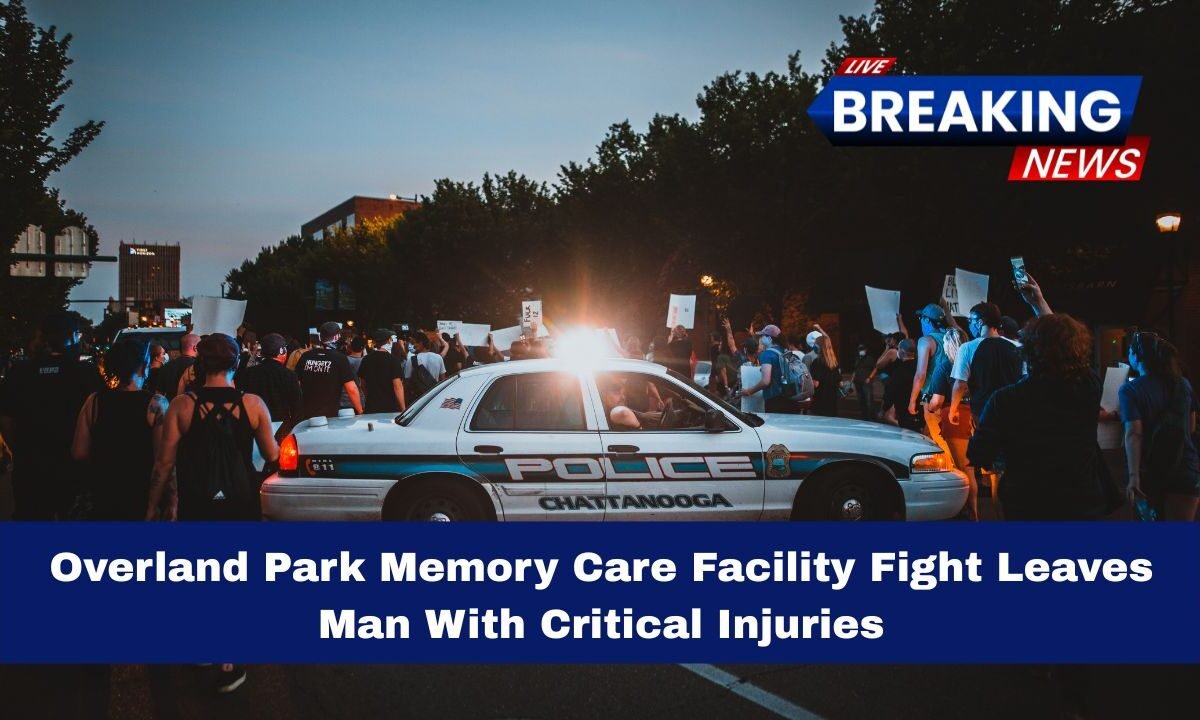An early-morning disturbance at a memory care facility near 75th Street and Switzer Road in Overland Park, Kansas left a 66-year-old man with life-threatening injuries and a 71-year-old man with non-life-threatening injuries.
Police responded just after 8:00 a.m. on Tuesday. Following initial interviews, detectives believe an 84-year-old resident caused the injuries. The suspected resident is being evaluated at a local hospital and is cooperating with investigators.
Facility staff are also cooperating as the investigation moves forward.
This incident highlights how quickly a situation can escalate in long-term care settings where residents may live with cognitive impairment, increased confusion, or behavioral changes.
While staff training and protocols are designed to prevent harm, resident-to-resident incidents can still occur and demand a rapid, coordinated response.
Key Facts at a Glance
| Item | Details |
|---|---|
| Location | Memory care facility near 75th St & Switzer Rd, Overland Park, KS |
| Time/Date | Just after 8:00 a.m., Tuesday |
| Victim 1 | 66-year-old man, life-threatening injuries, hospitalized |
| Victim 2 | 71-year-old man, non-life-threatening injuries |
| Suspected Resident | 84-year-old man, hospital evaluation, cooperating |
| Agency | Overland Park Police Department (OPPD) |
| Facility Status | Staff cooperating with investigators |
| Case Status | Active, developing investigation |
Why Memory Care Settings Are Uniquely Sensitive
Memory care facilities specialize in supporting residents with Alzheimer’s disease, dementia, or other conditions affecting memory and judgment. Factors that can elevate risk include:
- Cognitive decline: Reduced impulse control, misinterpretation of surroundings, and agitation can lead to unexpected confrontations.
- Shared spaces: Dining rooms, hallways, and activity areas can become high-interaction zones where conflicts are more likely.
- Change and routine: Disruptions in routine, new residents, or environmental stressors can trigger confusion or aggression.
When incidents occur, best-practice responses include immediate medical assessment, separation of involved residents, care plan reviews, and communication with families.
What Families Should Ask After a Resident-On-Resident Incident
If you have a loved one in assisted living or memory care, consider the following proactive steps:
- Request a care-plan review: Ask how the facility will adjust supervision levels, behavioral strategies, or room placement to reduce future risks.
- Clarify monitoring protocols: Understand how staff monitor high-traffic areas, shift staffing ratios, and respond to behavioral escalation.
- Discuss communication cadence: Establish how and when you’ll receive updates, including any medical status changes or policy adjustments.
- Document everything: Maintain a record of incident summaries, care-plan updates, and any medical evaluations for your family’s reference.
Community Impact and Next Steps
Incidents like this can be unsettling for residents, families, and staff. Facilities often provide debriefings for employees and reassurance to families, emphasizing enhanced observation while authorities complete their work.
For the wider community, this case serves as a reminder of the importance of specialized dementia training, environmental design, and consistent staffing to protect vulnerable residents.
As the OPPD investigation continues, potential next steps may include additional interviews, review of internal incident reports, and evaluation of surveillance or nurse-call logs, where available.
Because this remains a developing case, further details about charges or facility actions may emerge after medical evaluations and investigative findings are finalized.
A serious incident at an Overland Park memory care facility has left one resident with life-threatening injuries and another with non-life-threatening injuries, while an 84-year-old resident is under hospital evaluation and cooperating.
With police and facility staff both cooperating, the focus now is on resident safety, transparent communication with families, and a thorough investigation to determine what led to the altercation—and how similar events can be prevented.
In any long-term care environment, vigilant supervision, strong behavioral protocols, and rapid medical response remain essential to safeguarding vulnerable individuals.




